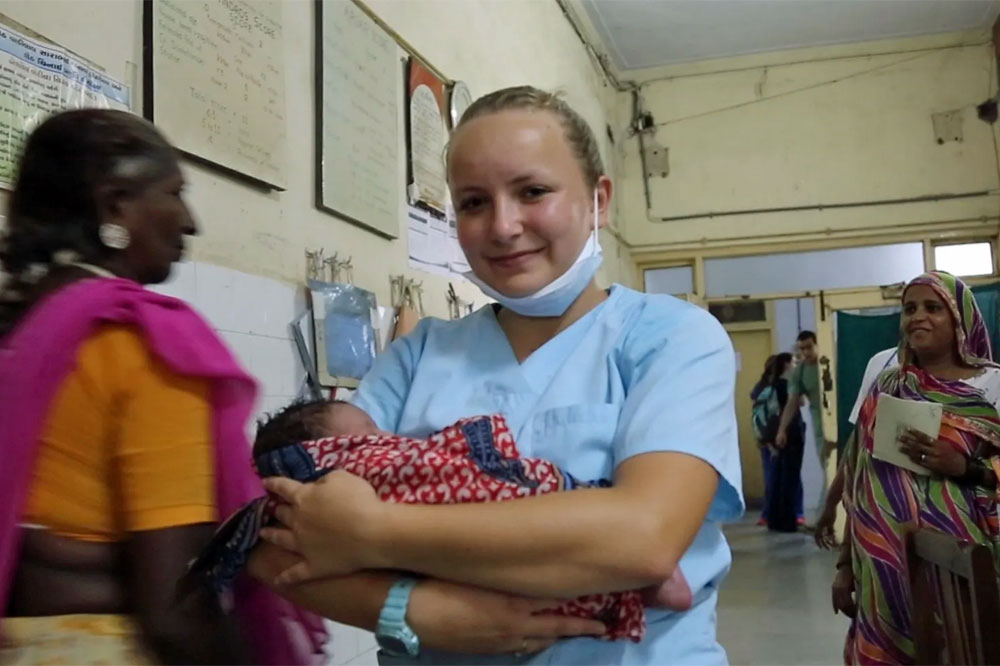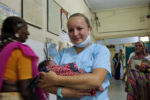
Gaining clinical experience is not only a great way to bolster a medical school application, but it also provides valuable exposure for students who see a future as physicians. Medical schools may state that it is not a strict requirement, but any pre-med student would be doing themselves a disservice by not, at the very least, considering a shadowing or volunteering experience.
In the context of applications and admissions, clinical experience shows a deep interest in a career as a physician. It demonstrates that a student has a good idea of what their chosen career path involves and that they are more likely to be dedicated to it. Since getting through medical school and becoming a qualified physician is no easy feat, getting clinical experience before taking the plunge can help students to confirm whether it is truly a career they want to pursue.
At the same time, practical shadowing and volunteering may help you develop a disposition that allows you to care for many different people. Students can better understand what it truly takes to be patient, kind, and open to people from different backgrounds. Clinical experience also pushes students to think of their medical careers in the long term, developing a clearer career vision for themselves.
Quick Link: Clinical Shadowing
All About Clinical Travel
One of the most exciting and fulfilling ways to gain clinical experience is through clinical travel. Clinical travel opportunities are designed to immerse students in both a health setting and a new country. Students can learn about new cultures, explore a new environment and, most importantly, learn from qualified and highly experienced physicians. Because they are well-considered and curated to give students a holistic experience, medical student travel programs are ideal.
Benefits for Applications
During a clinical travel program, students are comfortably accommodated and able to get in real-time clinical learning that earns them a certificate of completion. With the chance to participate in patient care scenarios, have discussions about clinical medicine and even scrub into live surgeries, clinical travel offers an experience of a lifetime. Because of all the in-depth knowledge and experience that students stand to gain, clinical travel remains one of the best ways to put forward a unique med school application. Strengthening an application with international experience may help students set themselves apart from other applicants, which is always a good thing!
Personal Development
Apart from helping students get into medical school, clinical travel is a wonderful avenue for personal growth. Immersion in a different culture, learning a new language, interacting with like-minded individuals and gaining a better understanding of the incredible work that physicians do are all things that stay with a student for life. Going abroad in this context is not just about being a better applicant, but being a better person in general.
Student Travel Opportunities
If you are interested in joining a clinical experience that will also net you more than 25 observation and extracurricular hours, consider enrolling in the MedSchoolCoach Ultimate Med Immersion trip to Cuba. This trip is a unique medical and cultural experience where students shadow doctors, observe live surgeries, and participate in community health services.
Related: Gain Extracurricular Hours, Curated for Pre-Med Students
How Else Can Pre-Med Students Gain Clinical Experience?
There are several ways to gain valuable experience in a clinical setting as a pre-med student, and they don’t all involve going to another country. For students who may not be able to visit another country for clinical experience, there are plenty of alternatives. The most common of these are shadowing and volunteering in a local health setting.
Job Shadowing
Shadowing is a great way to get a glimpse into the world of being a physician. This passive form of experience allows students to observe a physician as they carry out their daily duties and responsibilities. Students can follow a physician as they interact with their patients while having the opportunity to ask questions and have insightful discussions.
Consider getting a Virtual Clinical Education from MedSchoolCoach. Our virtual shadowing series allows you to shadow real physicians from about two dozen medical specialties. At the completion of each session, there is a brief quiz. Upon passing, you earn a certificate of completion that can go on your resume/CV and can be included within your medical school application. Try physician shadowing, if you haven’t already!
Volunteering
Volunteering is one of the most fulfilling forms of clinical experience because it allows students to serve members of their communities. Most pre-med students will cite wanting to help others as one of their reasons for pursuing a career in medicine. Volunteering is one of the first steps to doing this. Through volunteering, students can interact with hospital/clinic staff, observe some of the day-to-day operations of the environment, and serve those who aren’t as fortunate as they are.
For students interested improving access to quality healthcare in the developing world through the implementation of innovative and self-sustainable health improvement programs, FIMRC has some great volunteering opportunities. In additional to virtual programs you can volunteer for, they also have programs in Costa Rica, Dominican Republic, Ecuador, El Salvador, India, Nicaragua, Peru, Philippines and Uganda.
Scribing
Although less common than other forms of clinical experience, scribing is a good way to observe doctor interactions with patients. As a scribe, a student would follow a doctor as they talk to their patients and take notes so that the doctor can give their full attention to the patient.
Students can diversify their clinical experience by participating in a mix of different opportunities over their years as pre-med students. This allows for varied learning and deeper insights into the world of medicine.
If you are looking for scribing opportunities, consider ProScribe. They have on-site and virtual scribe positions. Their medical scribes are passionate about healthcare and work alongside the provider, assisting them by documenting into the EHR and performing other clerical duties.
Is Clinical Travel More Valuable Than Other Types of Experience?
There are many valuable forms of clinical experience for pre-med students, so it would be unfair to say that clinical travel is more valuable than others. Each form of experience offers students different learning outcomes and benefits. Clinical travel is ideal for developing cultural and clinical skills, but students (especially those who intend on practicing in the U.S.) have a lot to gain from some clinical experience in their home country. This kind of opportunity allows students to familiarize themselves with specific demographics, such as the elderly and those from marginalized groups and socio-economic backgrounds. This is part of gaining cultural competency.
It is also important to remember that although international clinical travel can definitely bolster a med school application, admissions boards look at applications as a whole. Students who cannot afford an international experience should not look at their local clinical experience as inferior. An application can still be strong if a student could not go abroad.
International clinical experience should definitely be on a student’s agenda if they have the means to participate. It is a deeply rewarding experience. Don’t worry, however, if you can’t go. There are several ways to immerse yourself in the world of medicine otherwise. Remember, it’s not just about your medical school application; it’s about you and what you are able to gain from the experience, too.
| Heard of medical tourism? Check out this Global Medical Brigade to Panama – an extraordinary travel opportunity for future physicians. |





